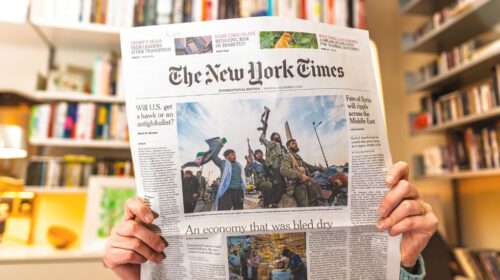Gray Ladies, Yellow Journalism and the Hidden Truth of Ukraine
In former times, the color gray possessed a nobility it has largely lost in today’s technicolor world. Gray hair was a sign of maturity and wisdom. Reasoning that respected shades of gray signaled deep thought and respect for the complexity...















